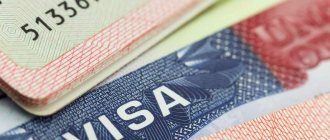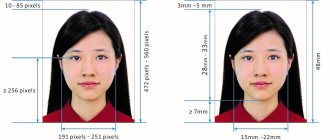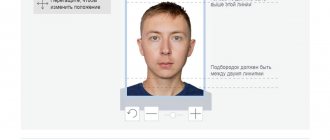The German nation is aging: 20% of Germans are over 65 years old, and the birth rate is falling. Germany is interested in the influx of young and active citizens who will be able to contribute to the development of the state: to work successfully, engage in business and science, and have children. In recent years, German legislation has significantly simplified the immigration process into the country for different categories of citizens. Moving to Germany for permanent residence in 2021 continues to remain attractive for Russians, promising life in a country with stable economic growth, high living standards and social security.
How to get a residence permit in Germany
Residence in Germany for more than 90 days within six months is possible for a foreign citizen if he has a residence permit (residence permit). The Residence Law in Germany (AufenthaltsG) states that obtaining the status of Aufenthaltstitel (residence permit) is only possible for those foreigners who entered the country with a national visa category D and applied with the corresponding application to the Office for Foreigners.
A residence permit is issued for a period of six months to two to three years and can be extended if necessary. The reason for obtaining a residence permit may be studying at a university or practice/internship, opening your own business or working under a contract, or marriage to a German citizen.
More details about what is needed to obtain a residence permit in Germany, about the pros and cons of this status, can be found in the article “Residence permit in Germany.”
It should be remembered that a residence permit does not automatically give the right to work in Germany - each case must be specifically prescribed. A residence permit allows a foreign citizen to subsequently apply for permanent residence (Niederlassungserlaubnis) and, in the future, German citizenship.
Is there any relaxation in the current immigration rules in the new law?
Yes. The main rule of the new law states: if a German employer needs a specific foreign qualified specialist with his specific skills, education and qualifications, then this specialist will receive the right to entry and employment.
The new provisions of the law no longer require a potential qualified foreign specialist to confirm the “scarcity” of his skills and profession. Since March 2021, authorized services are not required to compare the skills, knowledge, and qualifications of a foreign specialist with the list of professions required by the country.
The recognition of diplomas and qualifications of foreign specialists is facilitated. The provisions of the new law provide for an accelerated procedure for the recognition of qualifications, skills, work experience or education in the event that the corresponding request is sent by the employer himself 3§14a Berufsqualifikationsfeststellungsgesetz, §81a AufenthG.
It will also become possible to recognize foreign diplomas of secondary vocational education under so-called mediation agreements 4§2 Berufsqualifikationsfeststellungsgesetz. If a foreign qualified specialist, with a specific offer of work in Germany, receives confirmation of “partial equivalence” of his qualifications, skills, work experience or education, he will be able to enter Germany to work and receive full recognition of the qualifications, skills or education with the support of the employer 5§ 16d AufenthG (Maßnahmen zur Anerkennung ausländischer Berufsqualifikationen) .
The law abolishes the “residual principle” of providing work to foreigners: authorized bodies are no longer obliged to check the availability of potential candidates from Germany or other EU member states for each vacant position. After the law comes into force, any foreign qualified specialist, if he meets other conditions, can find a job in Germany.
Permanent residence in Germany: basic conditions for acquiring status
The legal basis for a foreign national to obtain the right to permanent residence and work (Niederlassungserlaubnis) in Germany is set out in § 9 of the Residence Act (AufenthG). According to the requirements of the law, in order to acquire German permanent residence a foreigner must:
- have resided legally in Germany for at least five years;
- have a means of subsistence: have a German bank account of 130 thousand euros or more per family or a monthly income of 1200-1500 euros per person;
- make voluntary or mandatory contributions (9.75% of salary, another 9.75% contributed by the employer) to the state pension fund for 60 months;
- comply with the law, during the last three years have not been subject to criminal or administrative liability and do not pose a danger to others;
- have a work permit (for those who came to Germany on a work visa) or carry out other legal activities;
- have a sufficient command of the German language (level A2, B1) and basic knowledge of the legal and social order, the rules of life in the territory of the federal state in which the resident lives. As confirmation of a resident’s knowledge, the law requires a certificate of completion of an integration course by a foreign citizen;
- have housing, the area of which is sufficient for family members to live with him (if any).
These are basic requirements, they can be clarified, adjusted, simplified depending on the real situation. The reasons for this are set out in the relevant paragraphs of the Residence Law:
- 19 and 42 - about highly qualified specialists;
- 21, paragraph 4 - on entrepreneurial activity;
- 23, 26 - about political, humanitarian and other reasons;
- 28 - about family reunification);
- 35 - about minor foreigners with a five-year residence permit;
- 38 - about former German citizens;
- 44 - on the exemption of certain categories of citizens from completing the integration course.
Methods and terms of receipt
There are more than thirty ways to achieve residence permit status in Germany, but not all of them can lead to obtaining permanent resident status. The possibility of obtaining permanent residence in Germany for citizens from Russia, Belarus or any other CIS state largely depends on the program of immigration, on the personal qualities of the applicant and other conditions.
Let's consider the main options with which you can obtain Niederlassungserlaubnis status:
- work in Germany. High qualifications, excellent knowledge of the German language (B2), knowledge of a profession that is in short supply in Germany (IT personnel, engineers, blue-collar workers, builders, mid-level and lower-level medical staff) - all these factors make it possible to obtain a residence permit with an extension, and after five years, having a work contract, obtain permanent residence. Blue Card holders have the opportunity to receive it quickly - after 33 months of continuous work experience in Germany in their profession. This period can be reduced to 21 months if the specialist speaks German at level B1 or higher. Unique knowledge or high achievements in science or sports can reduce this period to a minimum;
- business immigration is one of the most popular ways for Russians to obtain a residence permit, and then permanent residence in Germany. An entrepreneur and his family members receive a residence permit status for one year with the right to extension (subject to compliance with the law and the stable and successful functioning of the business). If the enterprise has been profitable for three years, the residence permit is extended for two years at once. A business immigrant and his family members can apply for Niederlassungserlaubnis status after three years of residence permit (with stable financial profits) or after five years of residence in Germany, after passing the German language exam;
- studying at a German university. In this case, the student receives a residence permit for 1-2 years with the right to extend until the end of his studies and, if he decides to stay in Germany - a residence permit for job search (up to 18 months), upon concluding a contract - permanent residence;
- family reunification - marriage with a holder of German citizenship or permanent residence, relocation of the spouse and minor children to the country. The requirements for the spouse are minimal - knowledge of the German language at level A1 and she must be 18 years old. The spouse receives a residence permit with the right to extension, then permanent residence or German citizenship, if the marriage is more than three years old - subject to cohabitation for the last two years in Germany.
German legislation provides for two more options for accelerated acquisition of permanent residence and citizenship.
It is possible for a Russian citizen to obtain permanent residence in Germany if he is the spouse of a so-called late migrant or a citizen of the former Soviet Union of Jewish nationality.
In the first case, citizens who do not have German roots, but are spouses of descendants of immigrants from Germany (must confirm the presence of German blood in their parents, grandparents or great-grandparents), receive a residence permit for three years, then permanent residence and citizenship. The descendants themselves and joint children acquire German citizenship automatically, without obtaining permanent residence.
The second option – Jewish immigration – is designed for people of Jewish origin who live in states on the territory of the former USSR: Russia, Ukraine, Moldova and others. Jews and their spouses immediately receive permanent residence for six years with subsequent acquisition of German citizenship, their children receive a residence permit.
Theoretical chances of obtaining permanent residence exist for Russian citizens when they apply to the Office for Migrants and Refugees (BAMF) for political asylum.
In accordance with the decree of the German Ministry of Health, from August 8 this year. Mandatory PCR testing for the presence of coronavirus infection has been introduced for all persons entering Germany and staying within 14 days before entering Germany in a country with an increased risk of COVID-19 disease. A list of such countries is given on the website of the R. Koch Institute. According to the position of the German authorities, as of August 14 this year. it includes Russia.
Mandatory testing can be done in the country of departure. In this case, when entering the territory of the Federal Republic of Germany, you must have with you a certificate of a negative result of a COVID-19 test using the PCR method in German or English, taken no earlier than 48 hours before entering the Federal Republic of Germany. A list of countries from which tests are accepted in Germany can be found here.
free within 72 hours of arrival . It is strongly recommended to do this directly at the point of entry into Germany. As of August 11, such testing is being carried out at Frankfurt am Main airport. If testing is not available at the border crossing with Germany, you must contact the information point by calling 116 117 and find out where you can get tested at your place of residence or temporary stay in Germany. In some cases, German authorities may require an additional test for COVID-19 5-7 days after the first. If you refuse to undergo a mandatory test for the presence of coronavirus, a monetary fine will be imposed.
Please note that if you enter Germany from a country with an increased risk of COVID-19, you will still need to undergo a 14-day quarantine, the rules of which are established by the authorities of the federal states and are available on the official Internet pages. Moreover, in most states (including Berlin), receiving a negative coronavirus test result exempts you from undergoing mandatory quarantine .
The regulation on quarantine and testing for coronavirus infection does not apply to persons who enter the territory of the Federal Republic of Germany for the purpose of transit.
If you develop symptoms of COVID-19, you should immediately report it to your local health authority.
Additional information is available on the website of the German Ministry of Health.
Procedure for obtaining permanent residence in Germany
The procedure for obtaining permanent residence in Germany differs depending on who is applying for this status. Those who already live in Germany with a residence permit status should apply to the Office for Foreigners (Ausländerbehörde) at their place of residence.
The procedure for obtaining late migrant status for those who wish to go to Germany for permanent residence, if they have German roots, consists of two stages. At the first of them, the applicant, while in Russia, submits an application (Antrag) and documents to obtain status. At the second stage, in Germany, the registration procedure takes place in the camp in Friedland. Here, immigrants will be able to undergo initial adaptation, receive support and begin processing their German citizenship.
You can learn more about what scheme applicants for obtaining the status of late migrants should follow, what documents they need for this, where to apply, what the procedure and time frame for consideration of the application are, by reading the article “Late Migrants”.
Special conditions also apply for Jewish immigration. To fly to Germany, applicants for resettlement must meet the following requirements:
- have Jewish origin (a grandparent is enough);
- speak German (minimum requirement - A1). This requirement does not apply to children under 15 years of age;
- be citizens of or reside in states on the territory of the former USSR, including Kaliningrad, excluding Lithuania, Latvia and Estonia;
- have confirmation that one of the Jewish communities of Germany will accept immigrants - a conclusion from the Jewish Charitable Committee Zentralen Wohlfahrtsstelle der Juden or the Union of Progressive Judaism Union der Progressive Juden;
- have integration potential: profession, qualifications, work experience, age, knowledge of languages.
For Jews born before 01/01/1945, exceptions can be made: language knowledge and integration potential are not required. But they need to prove the fact of their persecution.
All issues of resettlement of Jewish citizens in 2021 are in charge of the Federal Office of Migration and Refugees.
The procedure includes several stages. At the first stage, you need to receive an invitation to the German consulate and submit an application. You should then wait for allocation and admission decisions to be made. Within a year after the decision on admission is made, the applicant must apply for a visa for 90 days and travel to Germany.
More complete information about what opportunities exist for Russian citizens with Jewish roots to travel to Germany, what documents are required, where to apply and what to do upon arrival in the country can be obtained from the article “Jewish immigration to Germany.”
What documents are required
There are several options for submitting documents for permanent residence in Germany. The first applies to those who have lived in the country for 5 years or more with a residence permit and have the necessary income:
- students who studied at universities in Germany;
- highly qualified specialists;
- entrepreneurs.
To apply for permanent residence at the Office for Foreigners (Bundesverwaltungsamt, BVA), you must pay a fee (135 euros) and submit the following package of documents:
- application (as for obtaining a residence permit);
- international passport;
- 2 biometric photos 35 x 45 mm;
- certificate of income for the last three months;
- confirmation of employment (salary certificate from place of work);
- registration certificate;
- confirmation of the availability of housing that meets established standards (purchase and sale agreement, rental agreement);
- certificate of completion of the integration course and its copy;
- .
The second option concerns late migrants:
- application form for admission (Antrag auf Aufnahme nach dem Bundesvertriebenengesetz);
- power of attorney (Vollmacht) for a representative from Germany;
- notarized copies of international passports of all family members who are included in Antrag;
- notarized copies of certificates of family members (birth, marriage, divorce, adoption);
- copies of birth and death certificates of grandparents;
- certificate of no criminal record;
- copies of the work book, diplomas, certificates, documents on opening an individual entrepreneur.
Documents must be translated into German. In addition to the above, it is necessary to submit a Goethe Institute certificate of proficiency in German at least level B1 (for the applicant only).
For family members aged 18 years and older - Start Deutsch 1 (A1) certificate. If you have relatives who have already benefited from the Late Migrant Immigration Programme, you must add copies of their passports and Aufnahmebescheid.
The third option from the sets of papers should be prepared by Jews from the former USSR who need a visa to Germany for permanent residence.
It includes originals and copies of documents translated into German:
- international passports;
- birth certificates;
- military ID;
- certificate, diploma of education, work book;
- marriage certificates;
- certificate of knowledge of the German language at least level A1;
- confirmation of Jewish origin (any documents that can serve as evidence - birth and death certificates, old passports, house books, certificates from the archive and others);
- two photos 35 x 45 mm;
- application forms in German.
The applicant does not provide expert opinions from Jewish organizations in Germany - they will be requested by the Federal Office independently.
Later settlers
Late migrants is a program aimed at returning to their homeland those who for some reason ended up in a foreign country. The program can be used by children and grandchildren of ethnic Germans. You can also include your family members in your application.
To obtain status in 2021, you must go through 3 stages:
- Submitting an application. You can receive the forms in person. At the embassy or consulate, or request sending by mail. The application must be accompanied by documents confirming German roots and family ties with the people included in the application. These are birth certificates, marriage certificates, copies of personal documents. What specific papers are needed will become clear from the questions in the form. Often this set is individual.
- Passing a language test. A basic level of communication in German is sufficient for this. Children do not need to take this test; they, as a rule, adapt faster, even with zero knowledge of the language.
- Obtaining a visa to Germany. Processing of entry documents begins only after confirmation of participation in the program has been received. The notification received is necessary to open the required visa category.
For those who are truly descendants of immigrants from Germany, it will not be difficult to successfully complete all 3 stages and leave for their historical homeland. If your language knowledge is zero, the first step is to take language courses. The consular exam cannot be retaken, so preparation must be up to standard.
German citizenship as the ultimate goal of immigration
For many immigrants, the ultimate goal of integration into German society is acquiring German citizenship (Einbürgerung). This status provides full rights and responsibilities, including voting rights, the possibility of visa-free entry into 145 countries, and a ban on deportation.
To obtain citizenship you must:
- have lived in Germany for at least 8 years and have permanent residence status;
- receive a certificate of successful completion of the integration course, including passing the Einbürgerungstest - citizenship test;
- provide financially for yourself and your family;
- have a good command of the German language (from B1 and above);
- have no criminal record.
A necessary condition for obtaining German citizenship is the renunciation of previous citizenship. This circumstance stops some immigrants at the level of permanent residence status, which gives almost all the rights of German citizens.
After 15 years of permanent residence in Germany, the holder of permanent residence has the right to stay abroad for an unlimited time without the threat of loss.
FAQ
The topic of moving to Germany for permanent residence raises a lot of questions. We will try to give a brief answer to some of them.
Many immigrants are concerned about how much money they need to move to Germany. This issue is not regulated in any way by law, however, the ability to financially provide for yourself and your family and not apply for state benefits is one of the defining criteria for applying for permanent residence in Germany. The living wage for a single person in Germany is 646 euros. With the most approximate calculations, the expenses of a family with a child require two thousand euros per month.
For late migrants, the main condition will be to have money for a ticket to Friedland, where accommodation and food are free. The main condition is not to be afraid or embarrassed to ask and submit the appropriate applications: Germans are well aware that it is difficult to start living in Germany from scratch. You can receive a cash advance before payments begin. To be more confident, it is better to have an amount of 300-500 euros per person with you.
Another issue concerns persons with disabilities. This group of citizens has the same rights as all others, and there are no obstacles for them to move to Germany.
The question of which city in Germany is better to move to for permanent residence also arouses great interest. Late settlers choose their destination themselves. This issue is most often resolved in their favor in the presence of objective conditions - the presence of relatives who agree to register with them or provide financial assistance. For Jewish immigrants, the issue is resolved in accordance with the availability of free quotas in a particular federal state. For the rest - according to their employment or personal preferences.
Interesting fact. The procedure for leasing real estate in Germany has been worked out to the smallest detail and functions so effectively that many German citizens live in rented apartments and houses all their lives.
According to statistics, the most comfortable living conditions in Germany are in Munich and Bavaria, less expensive life is in the territory of the former GDR - in Leipzig, Magdeburg, Dresden. Students often choose Berlin, where there are more opportunities to get a good education.








